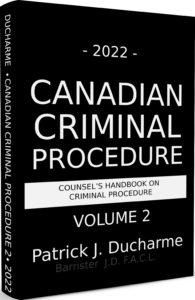 |
| Patrick J Ducharme |
Knowledge of an expert in a technical field may help a trier of fact decide a case. Persons who are qualified by education, training or experience in relation to a particular subject, may be permitted by the court to state their opinions about matters in their particular area of expertise, if the court concludes:
1. The intended evidence is relevant;
2. It is necessary to assist the trier of fact;
3. There is no legal basis to exclude the evidence; and,
4. The witness is a properly qualified expert.1
Opinion evidence is to be considered just like the testimony of any other witness. Because a witness is permitted to give an opinion does not require the trier of fact to accept it. The trier may believe or rely upon the opinion as much or as little as the trier of fact deems appropriate. The trier is usually asked to consider the education, training and experience of the person, the reasons given for the opinion, and, the rest of the evidence in the case to decide how much or how little to rely upon the opinion.
Witnesses providing opinion evidence often form their opinions by considering a number of facts that they have been asked to assume or rely upon as the basis for their analysis. When an expert witness assumes or relies upon a fact for the purpose of offering his or her opinion, and, that fact is not found to exist by the trier of fact, the extent to which the facts differ from the facts assumed or relied upon may be used to consider whether the witness’s opinion is helpful or unhelpful to the trier. How much or how little the trier of fact relies upon opinion evidence is entirely up to the trier.

The above is the an excerpt of Patrick J Ducharme's book, Canadian Criminal Procedure Volume 2, available at Amazon or in bulk through MedicaLegal Publishing along with Criminal Trial Strategies.
Subscribe to Patrick Ducharme's Youtube Channel
